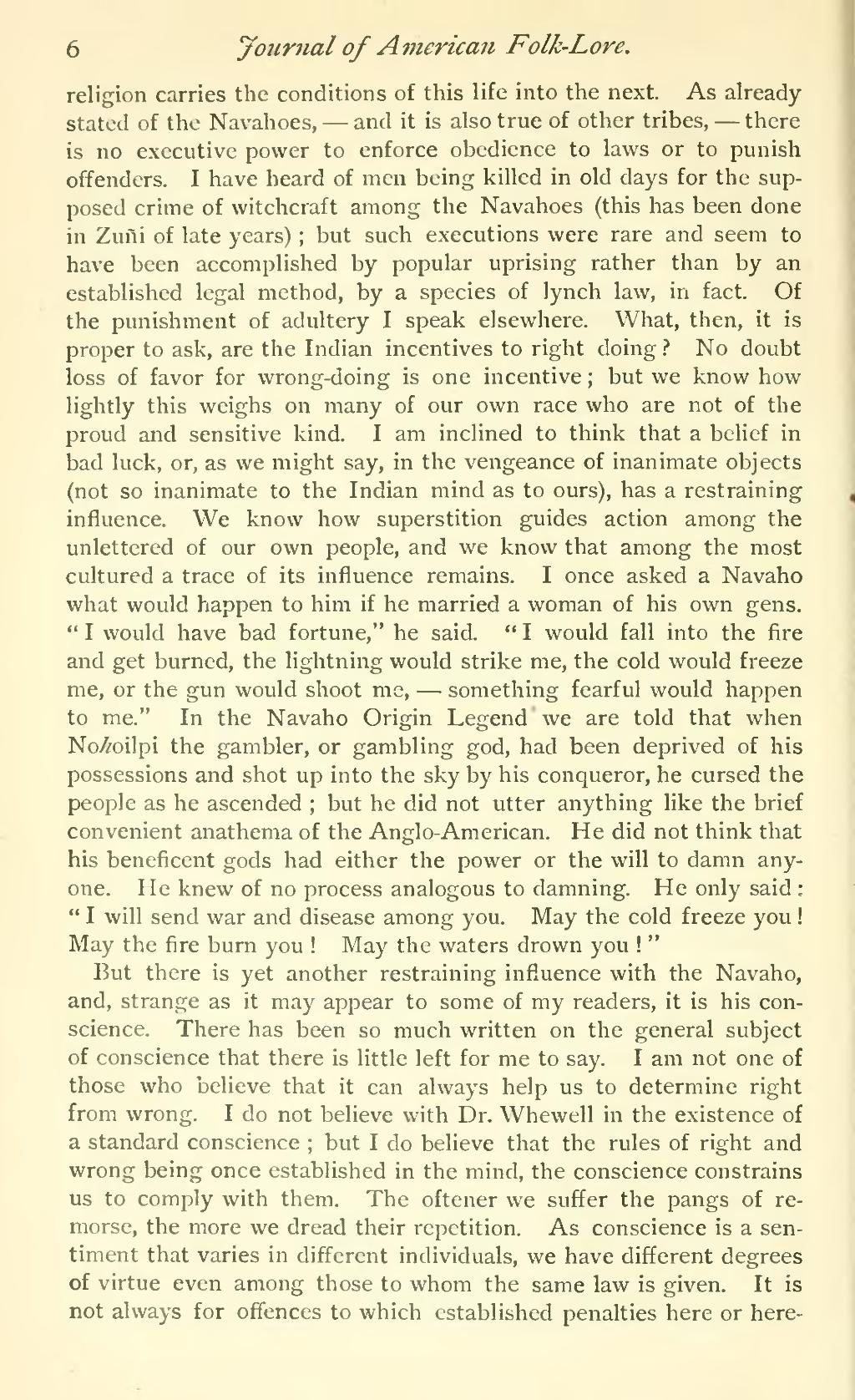religion carries the conditions of this life into the next. As already-stated of the Navahoes,—and it is also true of other tribes,—there is no executive power to enforce obedience to laws or to punish offenders. I have heard of men being killed in old days for the supposed crime of witchcraft among the Navahoes (this has been done in Zuñi of late years); but such executions were rare and seem to have been accomplished by popular uprising rather than by an established legal method, by a species of lynch law, in fact. Of the punishment of adultery I speak elsewhere. What, then, it is proper to ask, are the Indian incentives to right doing? No doubt loss of favor for wrong-doing is one incentive; but we know how lightly this weighs on many of our own race who are not of the proud and sensitive kind. I am inclined to think that a belief in bad luck, or, as we might say, in the vengeance of inanimate objects (not so inanimate to the Indian mind as to ours), has a restraining influence. We know how superstition guides action among the unlettered of our own people, and we know that among the most cultured a trace of its influence remains. I once asked a Navaho what would happen to him if he married a woman of his own gens. "I would have bad fortune," he said. "I would fall into the fire and get burned, the lightning would strike me, the cold would freeze me, or the gun would shoot me,—something fearful would happen to me." In the Navaho Origin Legend we are told that when Nohoilpi the gambler, or gambling god, had been deprived of his possessions and shot up into the sky by his conqueror, he cursed the people as he ascended; but he did not utter anything like the brief convenient anathema of the Anglo-American. He did not think that his beneficent gods had either the power or the will to damn anyone. He knew of no process analogous to damning. He only said; "I will send war and disease among you. May the cold freeze you! May the fire burn you! May the waters drown you!"
But there is yet another restraining influence with the Navaho, and, strange as it may appear to some of my readers, it is his conscience. There has been so much written on the general subject of conscience that there is little left for me to say. I am not one of those who believe that it can always help us to determine right from wrong. I do not believe with Dr. Whewell in the existence of a standard conscience; but I do believe that the rules of right and wrong being once established in the mind, the conscience constrains us to comply with them. The oftener we suffer the pangs of remorse, the more we dread their repetition. As conscience is a sentiment that varies in different individuals, we have different degrees of virtue even among those to whom the same law is given. It is not always for offences to which established penalties here or here-
